Red Shirley est un film américain de genre Documentaire réalisé par Lou Reed avec Lou Reed
Red Shirley (2010)
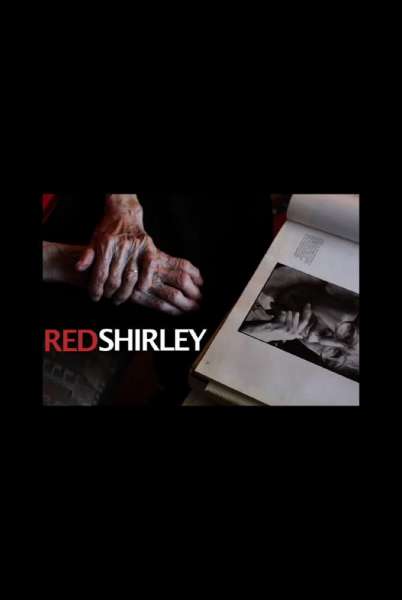
Si vous aimez ce film, faites-le savoir !
Durée 28minutes
Réalisé par Lou Reed
OrigineEtats-Unis
Genres Documentaire
Themes Le racisme, Religion, Documentaire sur la discrimination, Documentaire sur le droit, Documentaire sur la guerre, Documentaire historique, Documentaire sur la religion, Politique, Religion juive, Documentaire sur la Seconde Guerre mondiale
Note75%










Red Shirley is a short documentary film directed by Lou Reed. It tells the story of his cousin, Shirley Novick, living through World War I, fleeing Poland during World War II, and taking part in a 1963 civil rights march. The film was shot by photographer Ralph Gibson, and the soundtrack was recorded by Metal Machine Trio.
In 2011, Reed said there was a "great impetus" to create the film Red Shirley, given that a lot of information would be lost if he didn't. Its début was at the 2010 Vienna International Film Festival, before appearing in New York at the Jewish Film Festival. The trailer for the documentary featured a collection of photographs and a conversation between Reed and his cousin Novick. Novick's nickname is "Red Shirley", hence the title of the film.
Acteurs
Commentaires
Postez un commentaire :
Suggestions de films similaires à Red Shirley
Il y a 5 films ayant les mêmes acteurs, 0 films avec le même réalisateur, 8965 ayant les mêmes genres cinématographiques, 11147 films qui ont les mêmes thèmes (dont 76 films qui ont les mêmes 10 thèmes que Red Shirley), pour avoir au final 70 suggestions de films similaires.Si vous avez aimé Red Shirley, vous aimerez sûrement les films similaires suivants :
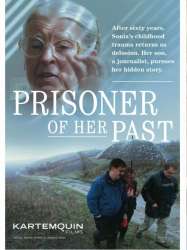
Prisoner of Her Past (2010)
, 57minutesOrigine Etats-Unis
Genres Documentaire
Thèmes Maladie, Le racisme, Religion, Documentaire sur la discrimination, Documentaire sur le droit, Documentaire sur la guerre, Documentaire historique, Documentaire sur une personnalité, Documentaire sur la religion, Documentaire sur la santé, Folie, Le handicap, Politique, Religion juive, Documentaire sur la Seconde Guerre mondiale
Note74%





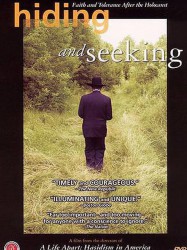
Hiding and Seeking (2004)
Genres Documentaire
Thèmes Le racisme, Religion, Documentaire sur la discrimination, Documentaire sur le droit, Documentaire sur la guerre, Documentaire historique, Documentaire sur une personnalité, Documentaire sur la religion, Politique, Religion juive, Documentaire sur la Seconde Guerre mondiale
Note77%





 , 1h32
, 1h32Origine Etats-Unis
Genres Documentaire, Historique
Thèmes Film traitant du cinéma, Le racisme, Religion, Documentaire sur le monde des affaires, Documentaire sur le cinéma, Documentaire sur la discrimination, Documentaire sur le droit, Documentaire sur la guerre, Documentaire historique, Documentaire sur une personnalité, Documentaire sur la religion, Politique, Religion juive, Documentaire sur la Seconde Guerre mondiale, Documentaire sur les films
Acteurs Gene Hackman, Robert Clary, Dan Curtis, Ralph Edwards, Ralph Fiennes, Ben Kingsley
Note74%





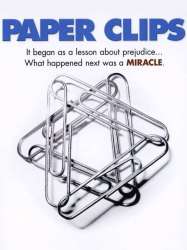
Paper Clips (2004)
, 1h22Origine Etats-Unis
Genres Documentaire
Thèmes Le thème de l'éducation, Le racisme, Religion, Documentaire sur la discrimination, Documentaire sur le droit, Documentaire sur la guerre, Documentaire historique, Documentaire sur la religion, Politique, Religion juive, Documentaire sur la Seconde Guerre mondiale
Acteurs Tom Bosley
Note72%





Paper Clips takes place in the rural, blue-collar Tennessee community of Whitwell, where a middle-school class attempts to gauge the magnitude of World War II's Holocaust by collecting paper clips, each of which represents a human life lost in the Nazis' slaughter of Jews. The idea came in 1998 from three of the teachers at the school and was completed in their eighth grade classrooms. The students ultimately succeeded in collecting over 25 million paperclips.
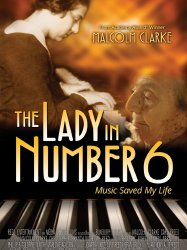
La Dame du 6 (2013)
, 39minutesRéalisé par Malcolm Clarke
Origine Canada
Genres Documentaire
Thèmes La musique, Le racisme, Religion, Documentaire sur la discrimination, Documentaire sur le droit, Documentaire sur la guerre, Documentaire historique, Documentaire sur la musique, Documentaire sur la religion, Musique, Politique, Religion juive, Documentaire sur la Seconde Guerre mondiale
Acteurs Malcolm Clarke
Note79%






Paradise Camp (1986)
, 56minutesGenres Documentaire
Thèmes Le racisme, Religion, Documentaire sur la discrimination, Documentaire sur le droit, Documentaire sur la guerre, Documentaire historique, Documentaire sur une personnalité, Documentaire sur la religion, Politique, Religion juive, Documentaire sur la Seconde Guerre mondiale
 , 1h25
, 1h25Genres Drame, Documentaire
Thèmes La famille, Le racisme, Religion, Documentaire sur la discrimination, Documentaire sur le droit, Documentaire sur la guerre, Documentaire historique, Documentaire sur une personnalité, Documentaire sur la religion, Politique, Religion juive, Documentaire sur la Seconde Guerre mondiale
Note72%





Malte's sister Barbel is shown defending her father and insisting that he could not have known the full truth about Auschwitz, that he tried to resist or subvert the Nazi's most inhumane policies, and that the victims of Auschwitz should be thought of as casualties of war. Malte also includes testimony from a member of a Jewish family in Slovakia whose house was expropriated by the Nazis in the early 1940s.
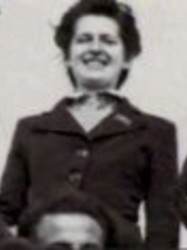
Soeurs en résistance (2000)
, 1hOrigine Etats-Unis
Genres Biographie, Documentaire
Thèmes Le racisme, Religion, Documentaire sur la discrimination, Documentaire sur le droit, Documentaire sur la guerre, Documentaire historique, Documentaire sur une personnalité, Documentaire sur la religion, Politique, Religion juive, Documentaire sur la Seconde Guerre mondiale
Acteurs Kate Mulgrew
Ce film est l'histoire de quatre femmes exceptionnelles, résistantes, prisonnières, idéalistes qui à la fin de leurs adolescences risquèrent leurs vies pour combattre l'occupant nazi. Ni juives, ni communistes, elles rejoignirent la résistance alors qu'elles auraient pu tranquillement vivre en sécurité. Dans les deux ans qui suivirent, elles furent arrêtées par la Gestapo et déportées à Buchenwald. Aujourd'hui elles sont devenues des leaders sociaux ou intellectuels.

Goodbye Holland (2004)
, 1h30Réalisé par Willy Lindwer
Genres Documentaire
Thèmes Le racisme, Religion, Documentaire sur la discrimination, Documentaire sur le droit, Documentaire sur la guerre, Documentaire historique, Documentaire sur une personnalité, Documentaire sur la religion, Politique, Religion juive, Documentaire sur la Seconde Guerre mondiale
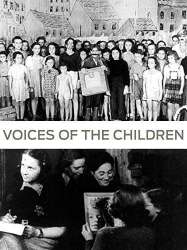
Voices of the Children (1998)
Genres Documentaire
Thèmes L'enfance, Le racisme, Religion, Documentaire sur la discrimination, Documentaire sur le droit, Documentaire sur la guerre, Documentaire historique, Documentaire sur une personnalité, Documentaire sur la religion, Politique, Religion juive, Documentaire sur la Seconde Guerre mondiale
 Connexion
Connexion
